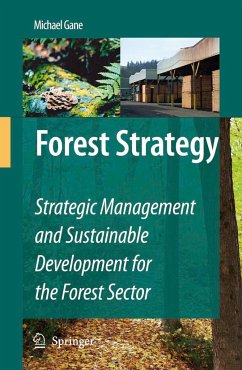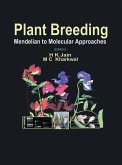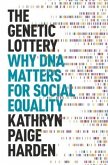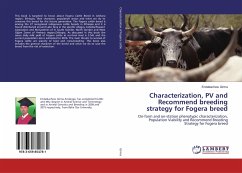This ground-breaking book combines detailed analysis of the forest sector with modern strategic management principles to develop a vision for sustainable forest management which is both practical and theoretically robust. The book adopts a holistic approach to propose a new theoretical framework for this once traditional sector; one which reconciles current thinking in strategic management with natural resource management.
In the past, lack of understanding at the nexus between the forest sector on the one hand and strategic management on the other, has led to failures in many countries to realise the potential that forest sector development offers. This important new book adopts a more holistic approach to propose a new theoretical framework for this once traditional sector; one which reconciles current thinking in strategic management with natural resource management.
The book will provide a valuable resource for both forestry professionals - particularly those in managerial positions in government departments and forest services throughout the world - and for advanced students and researchers exploring the issues around forest sector administration. The latter will include researchers from a range of backgrounds, including forestry, ecology, geography, conservation, rural development, economics, forest or environmental policy, social studies and public affairs, and will be of particular interest to groups adopting an interdisciplinary approach to forestry issues.
In the past, lack of understanding at the nexus between the forest sector on the one hand and strategic management on the other, has led to failures in many countries to realise the potential that forest sector development offers. This important new book adopts a more holistic approach to propose a new theoretical framework for this once traditional sector; one which reconciles current thinking in strategic management with natural resource management.
The book will provide a valuable resource for both forestry professionals - particularly those in managerial positions in government departments and forest services throughout the world - and for advanced students and researchers exploring the issues around forest sector administration. The latter will include researchers from a range of backgrounds, including forestry, ecology, geography, conservation, rural development, economics, forest or environmental policy, social studies and public affairs, and will be of particular interest to groups adopting an interdisciplinary approach to forestry issues.
From the reviews:
"The 414 densely-packed pages of text are divided into two parts. ... It covers strategic ideas and strategic methods. ... The reader is rewarded with some hugely interesting and valuable comments by the author ... . As a theoretical treatment of the forest sector and strategy, the book is interesting ... ." (Tim Rollinson, International Forestry Review, Vol. 11 (1), 2009)
"The 414 densely-packed pages of text are divided into two parts. ... It covers strategic ideas and strategic methods. ... The reader is rewarded with some hugely interesting and valuable comments by the author ... . As a theoretical treatment of the forest sector and strategy, the book is interesting ... ." (Tim Rollinson, International Forestry Review, Vol. 11 (1), 2009)








